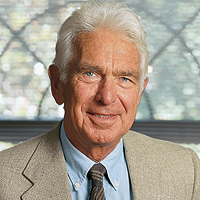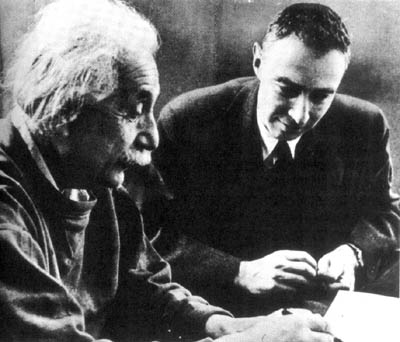Warren Bennis – Collaboration and Teamwork
Posted by Orrin Woodward on January 29, 2008
I found a reference to the Gladstone & Disraeli anecdote in the following interview. Warren Bennis was one of the first leadership authors I ever read. I truly believe we can Launch a Leadership Revolution—my assignment is to provide the best thoughts from the best minds for us to contemplate and develop our leadership ability. Here is the article:
David Gergen, editor-at-large of “U.S. News & World Report,” engages Warren Bennis, a professor of business administration at the University of Southern California, co-author of Organizing Genius: The Secrets of Creative Collaboration.
DAVID GERGEN: Warren, you write in your book that the day of the Lone Ranger is over; that the era of creative genius and what we’re going to accomplish creatively in the future is going to be a new one dominated by groups. What do you mean by that?
 WARREN BENNIS, Co-Author, “Organizing Genius”: I think the problems facing us are so complicated that with globalization, galloping technology, and
WARREN BENNIS, Co-Author, “Organizing Genius”: I think the problems facing us are so complicated that with globalization, galloping technology, and
that the idea of a John Wayne–marvelous as he was as an actor–is just going to make it in the new world. The problems are much too complex. Furthermore, it’s always been a group. If you look through history, even though we tend to lionize
the great man–as one of my students said, it was John Wayne who rode through my childhood, shaped my dreams of power and authority. It’s typically been a small group of thoughtful and committed people who have changed the world. When you ask people who painted the Sistine Chapel, what comes to most people’s minds, the correct answer is Michelangelo. But it was Michelangelo plus 13 terrific artists and a crew of 200 that did the Sistine Chapel. So all throughout history it’s been a group, a creative group.
DAVID GERGEN: We tend to think of Thomas Edison out there tinkering–
WARREN BENNIS: I know.
DAVID GERGEN: He had a great number of helpers.
WARREN BENNIS: He had a huge number of people whom he treated quite shabbily, so he kind of, you know, took the spotlight to himself.
DAVID GERGEN: What distinguishes a successful group, a great group–
WARREN BENNIS: A great group?
DAVID GERGEN: –from one that’s not successful?
WARREN BENNIS: Well, I think the–I was talking engine–source of these groups is that they’re accomplishing something that they really believe, all of them, is going to change the world, that’s going to make a dent in the universe, whether it’s Peter Schneider at the Walt Disney Studios who thinks the next film they’re going to make is the “Hunchback of Notre Dame” or the “Lion King” is just a different way of animating it, or I guess if the paradigmatic group in the book is really the “Manhattan Project.” Imagine, you’re J. Robert Oppenheimer in 1943, with the free world in balance, and your task is to create a nuclear device before the Japanese or Germans do it, so all of these groups felt that they were on a mission from God. In other words, they had a sense of spirit. They–one of them called it his great group of spiritual project. An animator at Walt Disney said, why do I work 80-hour weeks, because I think somehow I’ll find that damn Holy Grail; they can make a dent in the universe. So that all of these groups had a sense of meaning, of spirit, that they could really do something that no one else has ever done, so that this isn’t just your ordinary company vision, you know, which to a lot of people is banal or vapid. But these are groups that all had a sense of true meaning that they’re going to do something that no one else in the world has ever accomplished.
DAVID GERGEN: They also seem to have deadlines.
WARREN BENNIS: Yes, they had that. I should put it differently. At the heart of every great group is a dream, but it’s a dream with a deadline. Great groups, as I wrote about, ship. They get something out, whether it’s a campaign, whether it’s a movie, whether it’s a nuclear device. They all have some–a thingness, if I could. They’re putting out something, not just a lot of talk.
DAVID GERGEN: Steve Jobs and Apple.
WARREN BENNIS: For example.
DAVID GERGEN: You’ve got to get your product out. You’ve got to have a dream, but at the end of the day you’ve got to get a product out.
WARREN BENNIS: Right.
 DAVID GERGEN: The other thing was that these great groups seem to be young. I had never understood till I read your book at the Manhattan Project, the scientists there, the average age 25 years old.
DAVID GERGEN: The other thing was that these great groups seem to be young. I had never understood till I read your book at the Manhattan Project, the scientists there, the average age 25 years old.
WARREN BENNIS: Can you imagine that? I know. Yeah. I hesitate to talk about youth, having turned 72 last week, but–and when I talk a bit about the book to people whose hair is my color, but I do think there’s something about–there’s a certain innocence, a certain sense of not knowing what’s impossible.
DAVID GERGEN: And what you call delusional confidence.
WARREN BENNIS: It’s sort of a reality distortion field, unwarranted optimism, a sense of they can do something. And they don’t know what they don’t know.
DAVID GERGEN: Right. And the other thing I found so interesting, because I did find your–the “Manhattan Project” the paradigm, as you called it, the notion of making sure people in the group, the works in the group, that they think their work is meaningful. The anecdotes that you had about Richard Feinman, the physicist.
WARREN BENNIS: Yeah. They want all these technicians and engineers highly trained, college graduates, and they do sort of calculating work without the computers.
DAVID GERGEN: Bring it into Los Alamos.
WARREN BENNIS: Sort of doing–bringing it to Los Alamos, a godforsaken place, and they were doing just sort of minor calculations here, which were very boring. These were all very bright people. They didn’t know why they were doing it. They were brought their total secrecy. Finally, that young physicist, irreverent, outspoken, said to Dr. Oppenheimer, said, I’ve got to tell these people what they’re working on, because right now they’re just sort of like making little–they have no idea.
DAVID GERGEN: They have no idea about the atom bomb.
WARREN BENNIS: At all, total secrecy. So finally, J. Oppenheimer agreed and had seminars explaining to them not only the meaning of this, what they were doing–the free world was in balance–but also the significance of getting it before the Japanese or the Germans get it. And overnight, according to him, it was a miracle he said. These people began working eighteen-twenty hour days. They knew what they were involved in. Not only did Oppenheimer tell them what the bomb was about but also the physics, the theoretical aspects of it, so they were involved, and he said it was–and finally his words were total transformation. Talk about energizing, animating a group. If people know what the significance of what they’re doing is, I think a lot of people who right now working in boring, dull jobs can, you know, get a new lease on life.
DAVID GERGEN: You’ve written a lot of books about leadership. What is the role of the leader in these groups, the great groups?
WARREN BENNIS: They smell talent. They’re able to hire people, bring people in better than they were. They had–even Oppenheimer before Rolodex had a Rolodex of the best theoretical physicists, nuclear physicists in the world. And he was able to recruit meticulously, so the first, and then secondly to orchestrate this talent, not just to pile a lot of good bodies together. That doesn’t make a great group. But you’ve got to bring together a group of people as Peter Schneider, again, of Disney Studios, the animation studio, said, you’ve got to bring people together who want to play together in the sand box. That’s–the third thing is you’ve got to–you’re not the creator; you’re not necessarily the brightest or the best. You are the curator. You’re not the Fred Astaire on the stage of the Frank Sinatra, but you have created the social architecture that creates the Astaires and the Sinatras doing their best. And the best single anecdote I can give you is about two 19th century English prime ministers, Gladstone and Disraeli, and it was said about Gladstone, Prime Minister Gladstone, that when you had dinner with him, you thought that he was the world’s brightest, wittiest, most charming man you’ve ever met. But when you had dinner with Disraeli, you felt that you were the smartest, the wittiest, the most charming person you’ve ever met. These people inspire. Now, Oppenheimer, take the Manhattan Project, you know, there were seven future Nobel Laureates working for him. They were clearly in a way made more contribution to theoretical physics than he ever did, bright as he was.
DAVID GERGEN: Critical to leadership of an organization, a corporation, is creating trust between the leader and the followers. How much of a challenge is that in an era of downsizing?
WARREN BENNIS: Big, major. I gave a talk recently on, you know, my notions of leadership and empowerment and trust, et cetera, to a group of high potential executives, Fortune 100 company, and after I was through, they said, you know, Dr. Bennis, what you said is absolutely true, but tomorrow there could be a pink slip on my desk. So trust is the major issue facing most institutions right now, generating and sustaining trust. And it’s so difficult. And the only–you know, they can give you a lot of background on trust, you know, talk about constancy and competence, and integrity, and all that, but the major thing is authenticity and to really feel comfortable with your own skin. A leader like Rabin, who had no, you know, social graces of many–politicians had that sense of authenticity. So I think trust–without trust, I don’t think you can have a great group or great organization or lead a great nation state.
DAVID GERGEN: Warren Bennis, thank you very much.
WARREN BENNIS: Thank you, David.
One Response to “Warren Bennis – Collaboration and Teamwork”
Sorry, the comment form is closed at this time.








Warren Bennis – Six Personal Qualities of Leadership « Orrin Woodward Life Leadership Team said
[…] is a fantastic article by leadership guru Warren Bennis. Many leaders on the Team display these qualities and characteristics. In order to have […]